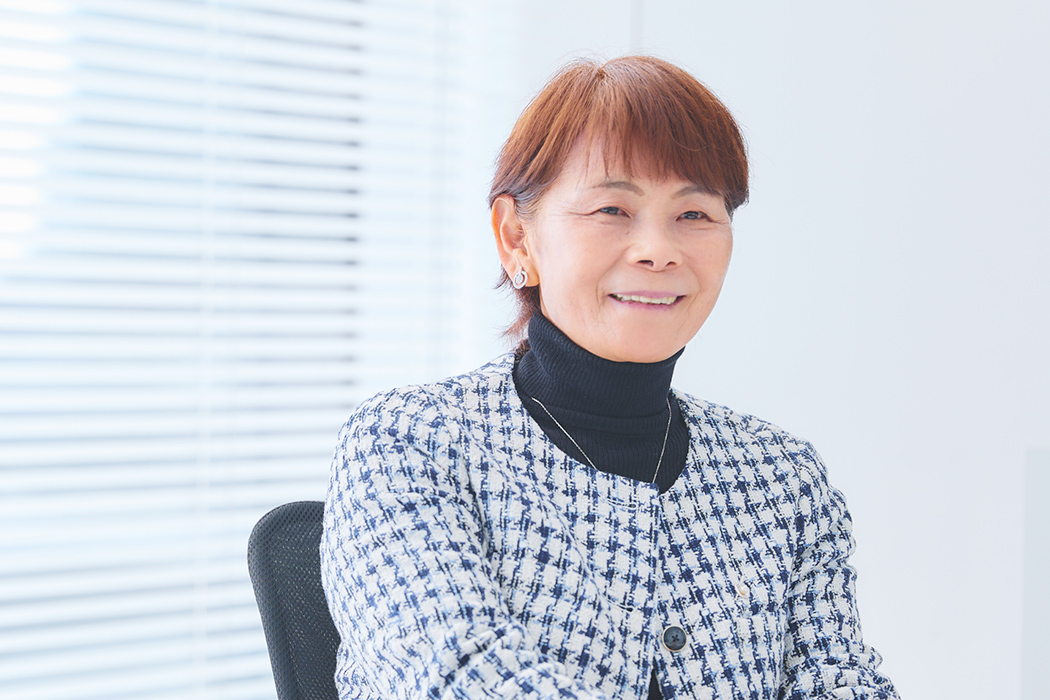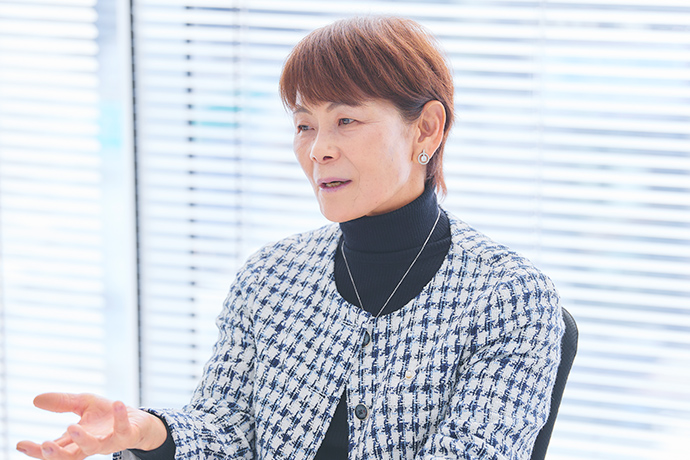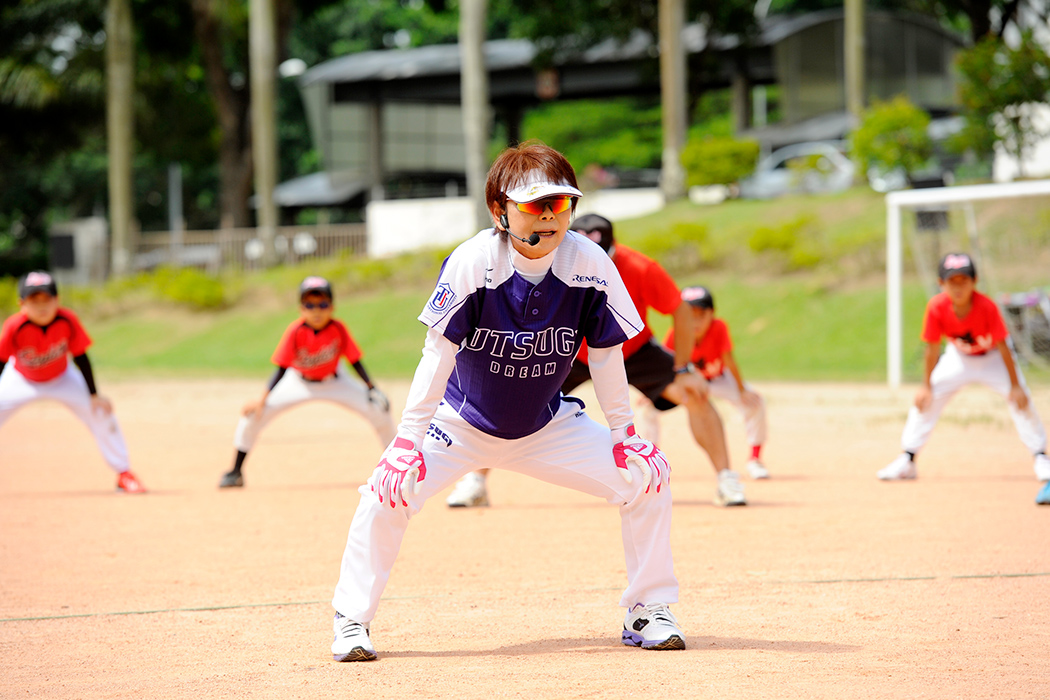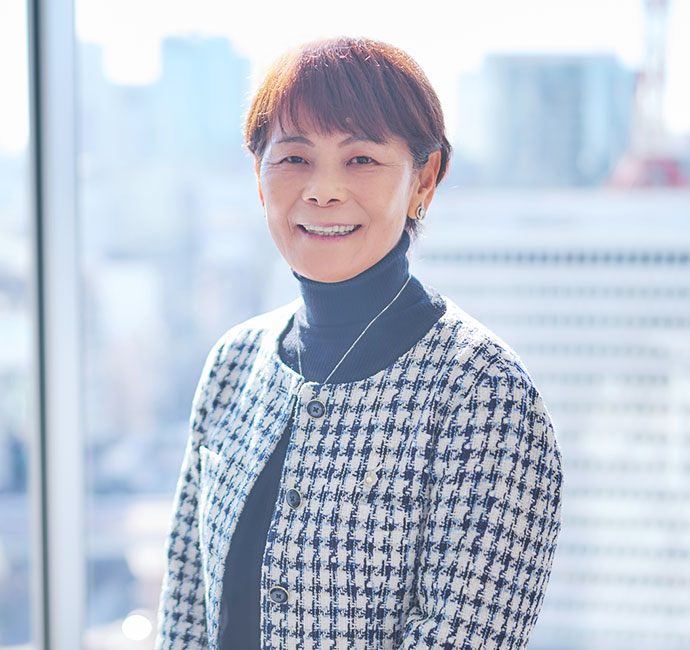
Expert Views

Taeko UtsugiFacing everyone earnestly and sincerely
First Published in Japanese in March 2024 [4 parts]
Part 4: The courage to accept responsibility

Finding ways to make simple drills fresh and exciting: perhaps Taeko Utsugi’s advice inspired you to find ways to make routine tasks more enjoyable. In the final part of this interview, she gives plenty of tips about building good relationships between senior and junior colleagues, as well as a warm message to readers.
── You have said you treated all players equally, but did you adjust your coaching methods for veteran players and younger players?
As a rule, I don’t make any distinction between veterans and youngsters, but I do tell veterans: “The younger players are watching everything you say and do; I’m sure you were the same. Unless you mind your words and actions, they will do the same thing.” And I sometimes tell the youngsters: “Your senior teammates are where they are today because they have overcome great hardships.”
I often hear the words “young people these days…” When I hear veteran players complaining about this, I have started praising them: “I think it’s important that you’re bothered by the way younger teammates act. It shows how much you have grown.”
Perhaps the most important thing is how you choose and use your words. In a team or organization with a mixture of people of different generations, leaders must speak in a way that everyone can understand and accept.
── From your point of view, having been a coach for many years, what do you think of coaches today?
I think it’s tough for sports coaches these days. If a coach pushes players in training and there’s an injury, they could be accused of abusing their power and you must be very careful what you say nowadays.
But if a coach uses that as a reason to not train players the way they should be trained or to avoid telling players what they need to be told, I think that is evading the coach’s responsibilities. You need to be willing to play the bad guy and to be criticized to help the players to win. If you don’t approach it with that attitude, you will never produce results.

When I was appointed manager of Hitachi Takasaki, I decided everything myself, from the team philosophy and rules to how they practiced. I said, “If we don’t get results in three years, I will quit.” I faced the players and team with that sense of responsibility.
── Your harsh training style has been reported in the media, hasn’t it?
“If you give up now, it will just be practice, but if you can take it one step further, it will make you stronger.” With this determination, I pushed players to the edge. The important thing is to assess when to stop. If players collapse or get injured, that will not make them stronger.
During batting practice, I can tell whether a player is not running because she has given up from the start, or really cannot run because she has reached her limit. If a veteran player made a mistake, I would take her out of training to give her a break.
── At the same time as playing the role of the strict coach, you have always placed importance on human relationships, like your talk of talking with the players after training.
Just the other day, I sang my heart out at karaoke with a group of players! I was the first to get dressed up and grab the microphone. It was an opportunity for me to see a side of the players that I don’t usually see on the training ground, and everyone had a great time.

I’m sure you probably go out with your colleagues too. I hope the boss is always first to let loose! Junior colleagues will not be able to show their true selves until they see their senior colleagues enjoying themselves.
Some people don’t like being invited to such occasions these days, but it’s no problem if someone turns down an invitation. Just try inviting people, telling them it’s fine if they don’t want to. Perhaps a bit of courage is required these days.
── You are currently involved in efforts to popularize softball around the world. What are your goals for the future?
It has been decided that softball will be included in the 2028 Los Angeles Olympics. I am working to raise the profile of softball around the world.
I have traveled to various countries in Africa, Europe and Southeast Asia. I feel the children I have met have taught me more than I have taught them. They have shown me that pure enjoyment is at the heart of softball.

Teaching and being taught at a softball class
As a coach, I had always focused on winning or losing. But seeing all those children in different countries made me remember what I had almost forgotten. I want to carry on playing softball and enjoying it.
── Finally, do you have a message for readers working in manufacturing?
── Taeko Utsugi is famous for intensive training, particularly her rapid-fire batting practice of over 40 balls per minute. Apparently, even professional baseball players were shocked by her tough training. As well as building up physical strength in her players, Utsugi herself is in incredible physical shape. Showing no signs of slowing down even now, she is planning an event where she will hit 10,000 balls in a single day. “I do two hours a day on the exercise bike, and I never skip the sit-ups, back muscle exercises, and push-ups,” says Utsugi. Looking at her, it’s hard to believe she was born in 1953.
What struck me from this interview was her uncompromising stance. As well as her attitude towards the players, I was able to get a glimpse of her even more stoic beliefs towards herself. As she said in this interview: “You can only become strong once three aspects are all in place: physical, mental, and technique.” If you know you are not getting enough exercise, maybe it’s time to learn from Taeko Utsugi and get back into shape. Improving your physical and mental health will boost your motivation at work, too.
* This article is based on an interview conducted in December 2023.
